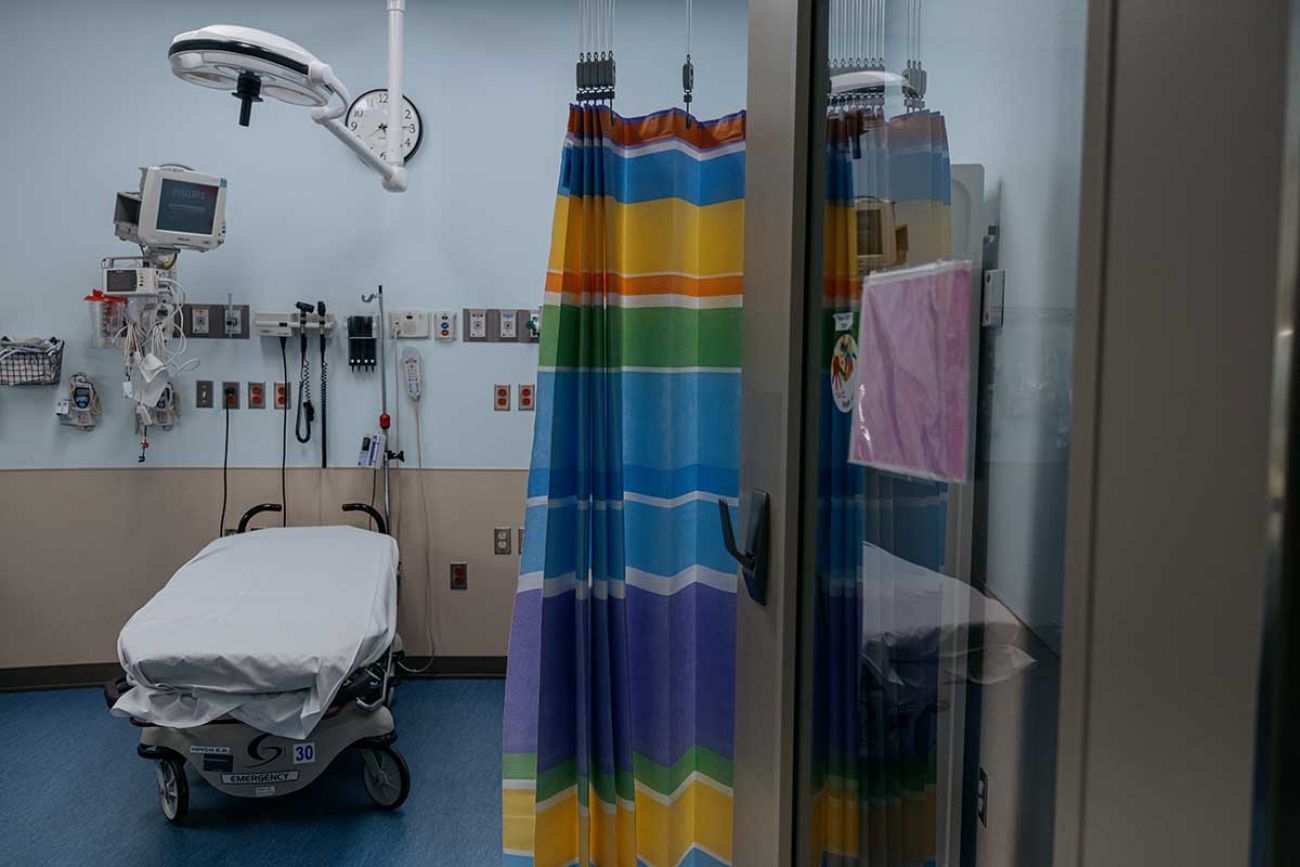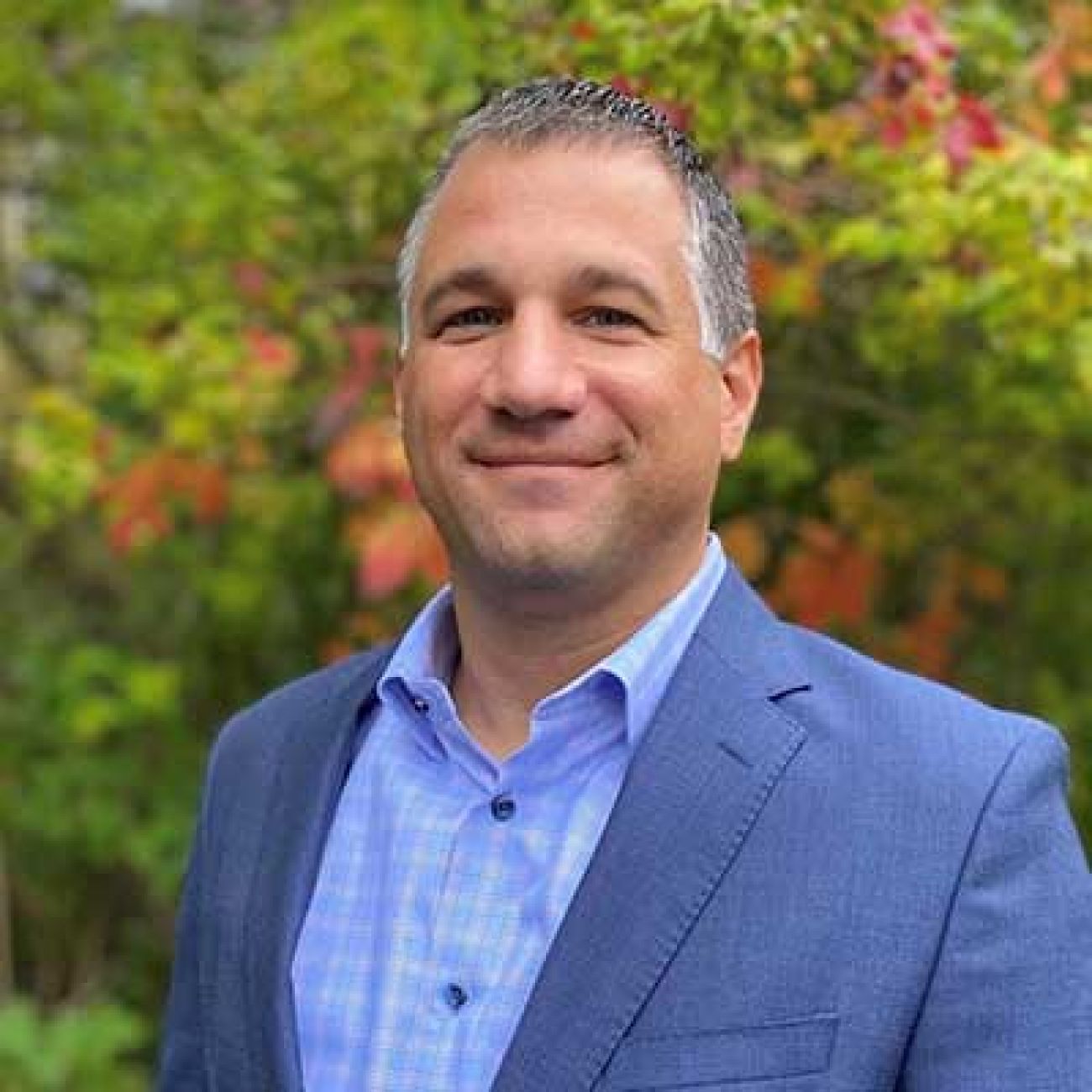Latest effort to reform Michigan’s mental-health system finds critics

SOUTHFIELD—Whatever their politics, whatever their role — parent or provider, lobbyist or lawmaker — on this they agree: Michigan’s complex mental health system needs fixing, fast.
But two legislative proposals meant to transform the system are facing pushback from families and mental-health advocates.
“It’s upside-down,” said Fred Cummins, 79, whose late daughter, Paige — a talented pianist, solid student and hard worker as a teen — spent more than 30 years with schizophrenia, fighting voices and seeing messages in places like the designs of tile floors.
Related stories:
- Did COVID fuel drug overdoses? Michigan deaths surged last year.
- Emergency rooms confront ‘tidal wave of sadness’ among young patients
- Mental health crisis: Children at breaking point during COVID
- Suicide, depression on rise in rural Michigan, but psychiatrists are scarce
- Michigan emergency rooms are jammed. Identifying mental illness can help.
- A child mental-health fix takes early action, more help. Here are 7 ideas for Michigan
He and other critics say they are once again fighting efforts that would ultimately privatize at least parts of the state’s $3.6 billion mental-health system and shift local decision-making powers to distant, for-profit insurers.
While some say they agree with pieces of one proposal or another, they have long opposed any restructuring of the system that ultimately could lead to its handover to a non-government, possibly for-profit, organization. The groups include Michigan’s National Alliance on Mental Illness, the state’s Association for Children’s Mental Health, and The Mental Health Association in Michigan — organizations that advocate for the more than 300,000 Michiganders with mental illnesses and their families.
“Decisions need to be made at the community level, where they deliver services, not at the top where it’s about politics and money,” Cummins said last week at a weekly meeting of parents and advocates who are part of the Alliance for the Mentally Ill of Oakland County.
The plans — one from Senate Majority Leader Mike Shirkey, R-Clarklake, and the other from State Rep. Mary Whiteford, R-Casco Township, would essentially eliminate a layer of bureaucracy now includes up of 10 managed Pre-Paid Inpatient Health Plans, or PIHPs, across the state that contract with local community mental health agencies to provide services.

Marge Mitchell, a long-time advocate for disability rights and executive director for Michigan Universal Health Care Access Network, a statewide network promoting healthcare for all, said if the Shirkey or Whiteford proposals were to go into effect, it would result in a “lack of accountability” that she called “just appalling.”
Mitchell and Cummins, as well as the parents and advocates that gathered with them last week in Oakland County, say they oppose both proposals as written:
- The plan from Shirkey, who had previously pushed for shifting the system’s managed care to private health insurers as the so-called “Section 298” effort, would essentially eliminate PIHPs and shift part of the state’s responsibility to commercial health insurances, so they can manage and contract for services.
In short-hand, Shirkey’s plan has been described as the plan that would privatize Michigan’s mental-health system. Shirkey and fellow Republican Dr. John Bizon of Battle Creek, formally introduced the two-bill package legislature Thursday.
Shirkey told lawmakers that the plan begins a “long process” to replace an “outdated” model with one that will “ensure that those who are among our most vulnerable population continue to get the services they need.”
Though the bills lack a bipartisan introduction, Shirkey said he has sought input from “almost every known interest group related to this industry.
- A second proposal, introduced by registered nurse and State Rep. Mary Whiteford, and co-sponsored by Republican and Democrat colleagues, also would eliminate the network of 10 PIHPs. The proposal would replace the network with a single public or nonprofit administrative services organization, or ASO, defined as a “contracted third-party organization with special expertise in behavioral health systems management.”
While both proposals essentially eliminate PIHPs as a way to streamline one layer of the bureaucracy, Whiteford said Shirkey’s plan relies more on shifting that layer of managed care to private insurers, while her plan is more a “fee-for-service” model, allowing clients to choose the care they want and wherever they want, with the state more directly picking up the cost.
Whiteford’s plan has been referred to the House Health Policy Committee.
A breaking point.
Michigan has long suffered from a shortage of psychiatrists and other mental health professionals, making access to care more difficult. But COVID this past year pushed the system to a breaking point as it isolated residents and sent anxiety and anger rippling through communities.
Perhaps most stunning has been the pandemic’s toll on children. Michigan’s 334 child psychiatric beds have often been filled with suicidal or other youth in crisis. And, as Bridge Michigan recently reported, children and teens in crisis routinely had to wait days or even weeks for specialized care, overwhelming hospital emergency rooms and sending families reeling with little help.
Experts say mental-health needs that have gone unattended for years, as well as new trauma created by COVID, will take years to address — making the need greater than ever for an improved mental health system, with more doctors and therapists available and sufficient inpatient beds for those in greatest despair.
But the current system has “a very disparate level of delivery of services across the state,” Shirkey told Bridge Michigan Monday.
He and Whiteford told Bridge their proposals are starting points to overhaul the system that desperately needs staff, too — from psychiatrists to therapists to social workers to direct care workers who assist families in their homes.
“Do I think it's the only solution? Of course not, there's always other options.” Shirkey said of his proposal. “But we've evaluated these other options … (and) I believe, personally, that this is the best, most robust, and, frankly, the highest probability of success solution.”
Part of the problem is this: Michiganders on Medicaid now must work within two different systems for their health care needs — private health plans for their physical needs and the complicated bureaucracy of the public health system for their mental health needs.
In contrast, those with private health insurance receive services through a single insurer.
Shifting the state’s mental health responsibilities to commercial insurance would improve the quality of services — not compromise it, as critics contend —and increase accountability, Shirkey said: Among well-established insurers, the state “has amazing and immense control over their performance.”
As it stands now, federal Medicaid dollars flow through the Michigan Department of Health and Human Services to the 10 PIHPs to manage the treatment of mental health and substance use disorders.
These prepaid plans contract with the Community Mental Health authorities, or CMHs, to provide services. Some CMHs provide the services directly; some contract the services to smaller, private providers.
By streamlining the fragmented system, Shirkey’s plan, which the Republican hopes would be improved with feedback from the public, could have some “real reform” for the Medicaid program in the state, said Dominick Pallone, executive director of the Michigan Association of Health Plans, which represents nearly all of Michigan’s largest insurers.

Pallone said the current system “doesn't work for the individuals enrolled in it, it doesn't work for the administrators administering the program, and it doesn't work well for taxpayers that end up paying the bill at the end of the day both at the state and federal level.”
Pallone’s organization reported that, in 2018, nine of the state’s 10 PIHPs had structural deficits that collectively amounted to nearly $107 million.
By shrinking administrative costs and turning to an experienced insurance industry to manage care, the state may save money that, in turn, can be diverted into building out more services, said Tim Michling, of the Livonia-based Citizens Research Council.
The nonpartisan public affairs research group released last month its review of the state’s mental health system for children and adolescents.
To maintain quality, he said, MDHHS must make clear what it expects the private insurers to do — and make sure they do it, he said.
Additionally, turning to private health plans will integrate physical and mental health, making it easier for “a warm handoff,” he said. For example, a primary care doctor may more easily be able to refer the patient who sought help for a heart condition to a mental therapist in the same health plan for the depression the doctor noticed — “ideally within the same facility.”
That’s a winning proposition, not only for saving money, but for better treating patients, he said.
There’s another reason behind the momentum to overhaul the state’s mental health system: a federal judge has ordered it.
In 2018, the Lansing-based advocacy nonprofit Disability Rights Michigan filed a class-action suit, K.B. versus Lyon, accusing the state of Michigan of “staggering failures” in its mental health system for children, including allowing children to go with too little if any care until they spiraled violently out of control and faced juvenile detection, psychiatric hospitalization and — as they approach adulthood — “permanent damage to their lives.”
While the suit was filed on behalf of children receiving mental-health services under Medicaid, Disability Rights also has demanded sweeping bureaucratic changes as they hammer out a settlement agreement.
Citing the lawsuit, MDHHS officials declined to take a position on the Shirkey and Whiteford plans, saying instead that they “look forward to working with our legislative partners.” Gov. Gretchen Whitmer’s office also offered no specific plans for change. Rather, a spokesperson there wrote in an email that the governor is “always open to working in a bipartisan fashion” on such issues.
Back in Oakland County last week, the group that gathered over grapes and cookies and Dunkin Donuts maintains that both plans simply replace one layer of existing bureaucracy that addresses local needs through regional PIHPs with a one-size-fits-all layer of bureaucracy.
For that reason and others, any cost savings are exaggerated, they said.
A better fix is to get rid of the PIHP layer altogether, leaving decision-making wholly up to the local community mental health agencies who are best equipped to make local decisions.
Those mental health agencies would be directly overseen by the Michigan Department of Health and Human Services, suggested Bob McReavy, a long-time advocate whose son has mental illness and now lives in a group home.
“You put the department back where it belongs. You hand the accountability back to the state,” he said.
He and others also say a lack of adequate funding for mental health is the biggest impediment to quality care, rather than bureaucracy.
“We spend so much time talking about structure but we’re not talking about the fundamental problem, and that’s about access,” said Nick Ciaramitoro, a member of the Macomb County Community Mental Health Board. Ciaramitoro — a former prosecutor, state representative and union leader — was among those who met in the AMI of Oakland County offices last week.
That lack of funding leads the argument back to one of accountability, Ciaramitoro told Bridge.
Shirkey’s plan to shift from a public to a private system buries accountability within private insurance companies who answer first to shareholders rather than taxpayers, he said.
The head of a Detroit-based community mental health program agreed, saying a provider’s economic model can have a significant impact on care.
“We don't get to keep money in our coffers, because we don't have shareholders and what-not. Anything that we save is reinvested in the people we provide services for,” said Eric Doeh, interim CEO of the Detroit Wayne Integrated Health Network, formerly known as the Detroit Wayne Mental Health Authority, which operates as a service provider and a PIHP.
“The public system’s motivation is — because there's no profit to be taken, any money we save goes back into services, so the motivation is to serve people,” said Robert Sheehan, executive director of the Lansing-based Community Mental Health Association of Michigan, who helped fight earlier efforts to privatize the system’s managed care component. “Insurance companies’ motivation, of course, is by law, they have to increase value for their shareholders, for the owners. So, their motivation is to spend as least as possible on care, that allows them to walk away with a larger dollar amount.”
Sheehan said Shirkey’s plan would gut the community mental health authorities because “95 percent of the financing the CMHs get would be spread out to other providers,” such as private therapists, and psychiatrists.
Those providers, Sheehan and others say, could pick and choose who they decide to serve and cut corners to save money.
“Within minutes there’d be low-cost providers saying, ‘Oh, I can do that,’” Sheehan said. “But they wouldn’t have the same obligation of CMHs.”
Sheehan said this is already happening in part.
Private psychiatric hospitals have far more freedom to choose who they admit. Sheehan said that under Shirkey’s plan, more behavioral health specialists would be able to refuse to take in patients.
There’s another reason, beyond a profit motive, that worries Mark Reinstein, former CEO and executive director of Michigan’s Mental Health Association, about Shirkey’s proposal, especially.
Community mental health agencies understand the sort of wraparound services that are necessary for better mental health — things like stable housing to decrease anxiety and stress, and transportation to get to appointments.
Private insurers tend to focus on diagnoses, medication and psychotherapy, Reinstein said.
“They're historically not interested in things like housing, transportation, socialization so that you're not isolated in the community and other social supports,” he said.
At least with the bipartisan proposal pushed by Whiteford, any changes in the bureaucracy keep the money within a nonprofit — or fully public — entity, Reinstein said.
Pallone, at the health insurers association, said he’s heard those arguments, but said the Shirkey proposal would help “standardize” the service level while making health insurances accountable to the state.
“I think that the heart of that argument is in the right place,” Pallone said. “But their concerns are a little bit misled here.”
Certainly, fixing the system will take more than streamlining bureaucracy, conceded Whiteford, who has long been working on mental health for years as a state lawmaker.
Earlier this year, Whiteford, along with the powerful Michigan Health & Hospital Association, were behind efforts that resulted in a House budget proposal that set aside $220 million for sweeping infrastructure improvements to the mental health system, including $100 million to expand long-term pediatric psychiatric inpatient services and $85 million to build a new psychiatric center for children.
Whiteford also was behind the push for a 24-hour statewide crisis line, which launched this spring in Oakland County and the Upper Peninsula.
It’s a significant start to overhaul a system with too few people, too much bureaucracy, and too many holes in its safety net, Whiteford said.
“The way I look at it, with a state of 10 million people, we have to start somewhere and just try to keep that snowball going,” she said.
Her latest work to eliminate PIHPs may appear like bureaucratic reshuffling, but it targets the core of the problem — access, said State Rep. Shri Thanedar, a Detroit Democrat and cosponsor of the package.
Any savings from shrinking 10 PIHPs to one organization “goes right back into patient care” that can pay for more staff and build out services, he said.
“Ultimately,” he said, “what really matters is access.”
Suicide Prevention Help in Michigan
If you or someone you know is contemplating suicide, there are people who can help. Call the National Suicide Prevention Lifeline at 800-273-8255 (800-273-TALK) 24/7. The group also lists resources for anyone who may be contemplating suicide: www.suicidepreventionlifeline.org.
Some national and local resources are tailored to your needs — for youth, the LGBTQ+ community, Native Americans, Spanish speakers, military veterans, or those who are deaf or hard of hearing, for example.
Local providers can be found here through the U.S. Substance Abuse and Mental Health Services Administration. Crisis lines in Michigan also are searchable by county through the Michigan Department of Health and Human Services.
The state’s Michigan Warm Line — 888-PEER-753 (888-733-7753) — provides people with mental illness with emotional support from a certified peer support specialist or peer recovery coach every day from 10 a.m. to 2 a.m.
In Oakland County and the Upper Peninsula, residents may call the new Michigan Crisis and Access line at 844-44-MICAL (844-446-4225) or chat live through this webpage.
Loved ones should take action, and take seriously, if they notice someone:
- Talking about wanting to die
- Searching for ways to kill themselves, such as searching online or buying a gun
- Talking about feeling hopeless, having no reason to live, feeling trapped, being in unbearable pain or being a burden to others
- Increasing the use of alcohol or drugs
- Acting anxious or agitated; behaving recklessly
- Sleeping too little or too much
- Withdrawing or isolating themselves
- Showing rage or talking about seeking revenge
- Extreme mood swings
For more information about how to take action for someone else, check out these suggestions.
See what new members are saying about why they donated to Bridge Michigan:
- “In order for this information to be accurate and unbiased it must be underwritten by its readers, not by special interests.” - Larry S.
- “Not many other media sources report on the topics Bridge does.” - Susan B.
- “Your journalism is outstanding and rare these days.” - Mark S.
If you want to ensure the future of nonpartisan, nonprofit Michigan journalism, please become a member today. You, too, will be asked why you donated and maybe we'll feature your quote next time!





